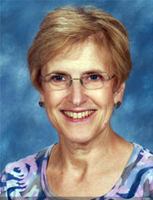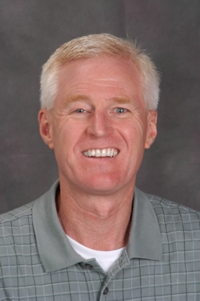What People are Saying about Christopher
Click a name to read what they have to say about Christopher Marchand.
Dr. Laurie Anne Pearlman, Ph.D., Senior Psychological Consultant, Headington Institute & President, Trauma Research, Education, and Training Institute
Monte Shoemake, M.A., Executive Director of Student Development/Dean of Students,Ozark Christian College, Joplin, Missouri
Kaila Johnson, College Student
Rev. Donald M. Prince, Pastor, Gentle Shepherd Community Church, Grey County, Ontario
Brenda Peters, M.A., Resident Director, Providence College & Seminary, Otterburne, Manitoba
David M. Johnstone, M.A., Associate Dean of Students, George Fox University, Newburg, Oregon
Marlin Reimer, M.A., Executive Committee of the Canadian Association for Christians in Student Development
Steph Kroeker, Women’s Shelter Support Worker, Steinbach, Manitoba
Dr. Don Russell, Ed. D., Russell Counseling and Consulting Services
Kent Dueck, Executive Director, Inner City Youth Alive
Lloyd Letkeman, Regional Mobilizer – Central Canada, Mennonite Brethren Mission and Service International
Daniel S. Dacombe, Executive Director, Youth for Christ, Landmark, Manitoba
John Unger, Senior Pastor, Fort Gary Mennonite Brethren Church, Winnipeg, Manitoba
David Dickey, M. Div., Adult Ministries Pastor, and Stephen Ministries Supervisor, Emmanuel Evangelical Free Church, Steinbach, Manitoba
Holly Hovestol, M.A., Christian Ministries, Chaplain and Director of Worship and Arts, Oak Hills Christian College, Bemidji, Minnesota
Rachel French, B.S.W., R.S.W., Social Worker, Pembina Place Mennonite Personal Care Home, Winnipeg, Manitoba
 Dr. Laurie Anne Pearlman, Ph.D., Senior
Psychological Consultant, Headington Institute & President, Trauma Research,
Education, and Training Institute
Dr. Laurie Anne Pearlman, Ph.D., Senior
Psychological Consultant, Headington Institute & President, Trauma Research,
Education, and Training Institute
Restoring Rebecca, a short novel by Christopher Marchand, is ideal reading for the teen (or adult!) who finds himself or herself in a constant caregiving role with friends or family. Rebecca is a likeable, responsible teen who is a top student, beloved daughter, friend of animals, and constant confidante among her peers. She seems almost too good to be true, yet we all know someone who seems to give endlessly to others. Eventually, we see that Rebecca is paying a price for her unlimited care and concern, and that price is also paid by her loved ones as she melts down into someone overcome by the costs of caring. These costs, which are conceptualized in the book as compassion fatigue, look a lot like the psychological and interpersonal issues with which some of Rebecca’s friends are struggling. After meeting with a too-bad-to-be-true counselor, Rebecca finds the support she needs from the veterinarian with whom she volunteers. With the vet’s wise guidance, based in her own personal experience of compulsive care-giving, Rebecca is restored to a healthier, still compassionate, way of living.
In Restoring Rebecca, Christopher Marchand has provided an engaging plot and some nicely drawn relationships. Marchand draws the vulnerability of Rebecca, a winning teen, with compassion. The book is a quick read with some excellent guidance for those who have trouble saying no to their friends. Its only flaw is the characterization of the counselor, whose behavior is certainly not characteristic of the many talented and sensitive professionals in the counseling field. I would hope teens and adults needing help would consider visiting more than one counselor in order to find one who is attuned to their needs and feelings.

When I was asked to review Christopher Marchand’s new book Restoring Rebecca I wasn’t really sure what to expect. After all it was a fiction with a study guide in the back!
As I dove into Christopher’s book I very quickly came to understand the benefits of telling a compelling story to describe the real challenges associated with compassion fatigue.
Put simply, I was absolutely drawn into the compassionate life of the fictional character Rebecca as her experiences mirror many of the college student’s experiences I have worked with. Many like Rebecca unknowingly burn themselves out in the stressful process of loving and caring for people.
This book isn’t a boring, stuffy, facts in your face text book – rather, Christopher through the telling of a story, takes a very creative approach to ultimately reveal several key essentials for healthy care giving.
What I also love about this book is the Professional Quality of Life Scale (Compassion Satisfaction and Fatigue Test) found in the Study Guide. The simple assessment tool helps a person determine how they are actually doing in the realm of healthy care giving and their risk factor for compassion fatigue.
If you are involved in compassionate care giving or the training of care givers, I highly recommend grabbing a copy of Christopher’s book. It is a quick read and a great resource (gift) for those who may be unknowing drowning in their own compassion.
 Kaila
Johnson, College Student
Kaila
Johnson, College Student
Restoring Rebecca is a book that you will not want to put down, but has a heavy, realistic edge with eye opening consequences. Rebecca's story is not only explanatory for those dealing with compassion fatigue, but a glimpse into the life of the emotional roller coaster of empathy. From a person who has and is dealing with compassion fatigue, Restoring Rebecca has lifted a confusing burden, and I too am being restored!
 Rev. Donald M. Prince,
Pastor, Gentle Shepherd Community Church, Grey County, Ontario
Rev. Donald M. Prince,
Pastor, Gentle Shepherd Community Church, Grey County, Ontario
The book, Restoring Rebecca, is a must for all people who are in any form of caring ministry. It is candid, witty and caused me to face my own anxiety as I recognized the symptoms of ‘compassion fatigue’ in my own life. It is a book of encouragement helping us all to consider how we can be better care givers.
 Brenda Peters, M.A.,
Resident Director, Providence College & Seminary, Otterburne, Manitoba
Brenda Peters, M.A.,
Resident Director, Providence College & Seminary, Otterburne, Manitoba
Rebecca's story resonates with the life of a Resident Director. At times I’ve found myself overwhelmed and unexplainably affected by student's stories of turmoil and trauma. Restoring Rebecca speaks directly to the need of self awareness and self-care. The super-hero cape needs to be retired!
David M. Johnstone, M.A., Associate Dean of Students, George Fox University, Newburg, Oregon
In recent decades the dynamics and concerns related to Post-Traumatic Stress Disorder (PTSD) have become increasingly recognized, diagnosed and treated. Less recognized is the concern over Secondary Post-Traumatic Stress Disorder (SPTSD). Few outside the worlds of social work, medicine, and emergency response services are aware of these issues. Researching this topic, one discovers that it is spoken about at many levels within the training and practices of these particular vocational fields. Yet at the same time, it is not often recognized beyond these areas.
In Restoring Rebecca, Christopher Marchand, Associate Professor of Youth Leadership at Providence College (Manitoba), introduces this disorder to a wide audience in a very accessible book. SPTSD is commonly known as vicarious trauma or compassion fatigue. It refers to the overwhelming nature of exhaustion which can result from being personally aware of and responding to the trauma that someone else is experiencing. Examples could include, a fire-fighter trying to rescue a dying child from a burning car wreck or a social worker who discovers his foster child has a recent history of abuse. The caregiver or first responder does not experience the immediate or primary trauma of the victim; however, he or she is experiences secondary trauma as one who is empathically involved in the crisis or traumatic experience of the victim.
Using a composite character, Marchand outlines the week in the life of a high school student named Rebecca. Using her experiences with friends and family, he illustrates the not uncommon experiences of many individuals who long to extend kindness and compassion to their peers. Rebecca navigates through the stories, experiences and observations of substance abuse, bullying, physical injury, family dynamics, and suicidal ideation. These experiences begin to increase her stress and eventually begin to wreak havoc in Rebecca’s life. As she attempts to help her friends, she begins to experience her own trauma.
To grasp the significance of this book and its subject requires that I go back to the summer of 2007. I came across a short article by Marchand, in which he applied the theories and notions of SPTSD to the role of the youth worker. In his experience, he had observed that most youth workers had intimate knowledge of the pain and angst of the children and young adults who trusted them. Marchand assessed that while many other care-giving professions were trained to identify the symptoms of SPTSD, youth workers were not. They were unable to recognize that their anxiety, fatigue, and sleepless nights were the result of exposure to the hard things experienced by their young people. These symptoms could be evidence of something quickly recognized by mental health professionals. However, youth workers were in fields not familiar with the signs and background of this disorder. Marchand began synthesizing tools and theories, with the intent of using them as an important part of caring for youth workers; particularly he wanted to provide tools for recognizing compassion fatigue.
In conversation, he discerned that this material might also have relevance for those in the world of student affairs. While he was not aware of it ever having been theoretically applied to college student affairs, he speculated that it might be of use to the field. I was intrigued by his reflections and suggestion. Upon his recommendation, I administered the Compassion Satisfaction and Fatigue Test (also known as the Professional Quality of Life Scale) to the George Fox University professional staff members who live on campus among our residential student population. I administered the scale two more times through the academic year and then as the year concluded. I am in my second year of administering the scale.
We have used the scale to assist our staff in discussing how to care for one another and how to assess the veracity of our perception of reality. The tools Marchand has highlighted are simple and quick. Training is unnecessary for administering the scale, and the results are as valuable as you want to make them. The scale is NOT a tool for therapy, but the results could be used to direct one to a counselor. They are particularly useful for assessing and evaluating how we maneuver through boundaries, stress, workload and weariness.
Marchand provides a study guide and tools as appendices to the book. Both the book and its resources can be easily used by both professional student affairs staff and their student leaders. While it may not be classic literature, its intent is to bring the unexpected and the perplexing world of compassion fatigue into focus and create understanding in an easily accessible manner.
This small book, which can be read in a few hours, is a parable and illustration of how caring can be overwhelming. In story form, Marchand sets out to describe the fatigue, the paralysis and the emptiness that sometimes accompanies the desire to love and care without restraint. He uses the poignant phrase “unexpected cost of caring” to express his concern. While Rebecca’s week is concentrated with trauma, one does not have to go very far to observe how Marchand’s story is not embellished. Thinking of the crises, illnesses and tragedies our college students experience, and then the care directed towards them; our colleagues in student affairs are prime candidates for SPTSD or compassion fatigue. This book illustrates the unexpected consequences of caring, yet provides a strategy to minimize that cost and how to restore our ability to care. Soli Deo Gloria.
 Marlin
Reimer, M.A., Executive Committee of the Canadian Association for
Christians in Student Development
Marlin
Reimer, M.A., Executive Committee of the Canadian Association for
Christians in Student Development
Reading this book has opened my eyes to the huge impact that caring for others has on those of us who are caregivers. Student Life departments in our colleges and universities are filled with compassionate staff and student leaders who are often confused about why they don't feel, think, or act "caring" anymore. Christopher clears up the confusion through introducing us to Compassion Fatigue and by providing a model of healthy caring. The story format and the simple self tests at the end of the book make the content extremely practical and easy to understand. I will definitely use this book with our Student Life staff and student leaders during our training sessions as well as in our student leadership course.
Steph Kroeker, Women’s Shelter Support Worker, Steinbach, Manitoba
Restoring Rebecca is a heart-warming and accessible novel that educates its audience while entertaining them. Marchand has very wisely used this medium to couch the important information regarding compassion fatigue. As a Woman's Shelter Support Worker, I cannot be helpful to clients if I have not taken care of myself. This book not only makes it easy for reader's to recognize symptoms of compassion fatigue, but helps them take the first steps to self-care, which inevitably leads to better care for everyone involved.
 Dr. Don Russell, Ed. D.,
Russell Counseling and Consulting Services
Dr. Don Russell, Ed. D.,
Russell Counseling and Consulting Services
Dr. Marchard has done a great service for all people in the helping professions. He has brought to our attention the epidemic of secondary traumatization and compassion fatigue within the professions. What is truly remarkable is that he draws the reader in through narrative, rather than proposition. The result is the reader avoids the peril of denial - 'this isn't happening to me', by sitting us in a front row seat as a talented and gifted helper is ambushed by her humanity. If you are a caregiver whether by profession or by avocation you need to read this book. If you are a supervisor of caregivers, you need to give away copies of this book.
Kent Dueck, Executive Director, Inner City Youth Alive
Chris Marchand's seminar hit the mark with our team. Epiphanies all around and a day of real healing! His presentation took a sensitive topic threw in some good humor balanced off with an honest look at the heart of the issue of compassion fatigue. Our staff team all agreed that it was a day that will keep going for years. Subsequent to the day I still hear staff referencing some of what they learned and using the information to debrief the many crisis that we face in our work.
Lloyd Letkeman, Regional Mobilizer – Central Canada, Mennonite Brethren Mission and Service International
Chris Marchand has provided a vocabulary and conceptual framework for those of us in care-giving contexts to give expression to the common professional hazards of compassion fatigue and secondary traumatic stress syndrome. Through Chris's work we were able to distinguish compassion fatigue from professional burnout, and begin the journey toward healthy practices. Every care-giver would benefit from Chris's seminar.
 Daniel S. Dacombe, Executive
Director, Youth for Christ, Landmark, Manitoba
Daniel S. Dacombe, Executive
Director, Youth for Christ, Landmark, Manitoba
The subject matter was deeply relevant, while the speaker was engaging and dynamic. This was the first time that my staff listed the sessions as their favorite part of a retreat.
 John
Unger, Senior Pastor, Fort Gary Mennonite Brethren Church,
Winnipeg, Manitoba
John
Unger, Senior Pastor, Fort Gary Mennonite Brethren Church,
Winnipeg, Manitoba
Dr. Marchand's presentation is particularly helpful as churches reach out into their communities and encounter the turbulence of our times and culture. Helping caregivers "put their own mask on first" ensures they will sustain the ability to help others. His sessions are practical and life-giving.
David Dickey, M. Div., Adult Ministries Pastor, and Stephen Ministries Supervisor, Emmanuel Evangelical Free Church, Steinbach, Manitoba
Care for the care-giver! This workshop alerted me to an often overlooked necessity - initiating a debriefing with a fellow professional or volunteer after they’ve been rocked by their experience of supporting someone traumatized by abuse, fear or a fatality (whether an immediate experience or the painful disclosure of a past trauma). Vital insights for anyone supervising those engaged in compassion ministries.
Holly Hovestol, M.A., Christian Ministries, Chaplain and Director of Worship and Arts, Oak Hills Christian College, Bemidji, Minnesota
The information shared by Dr. Chris Marchand on Compassion Fatigue and it's influence on Christian workers was very helpful to me. Anyone involved in Caring Ministry needs to see this material for their own health and the health of their ministry.
Rachel French, B.S.W., R.S.W., Social Worker, Pembina Place Mennonite Personal Care Home, Winnipeg, Manitoba
Dr. Marchand’s workshop is insightful and applicable for anyone involved in a caregiving role – counselors, social workers, clergy, health care professionals, teachers. Dr. Marchand not only engages the audience, but also provides a framework for understanding the specific experience of Compassion Fatigue, which can be commonly misidentified as burnout.
